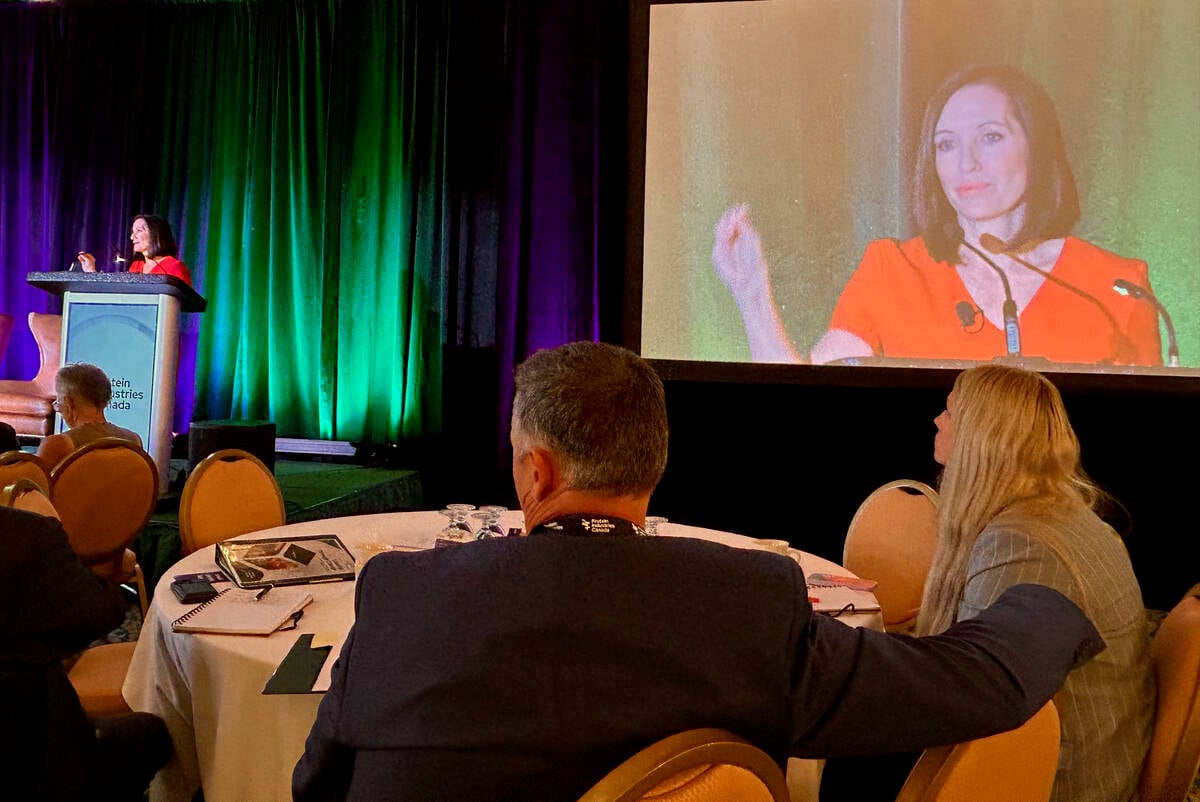EDMONTON — The Alberta government promises continued support for research and market development even after it dismantles the Alberta Livestock and Meat Agency.
“I want to assure you, we remain committed to the long-term growth and sustainability of the livestock sector,” said agriculture minister Oneil Carlier at Futurefare, an ALMA event designed to highlight the agency’s accomplishments.
Alberta Agriculture assumes responsibility of ALMA’s duties on Nov. 1, said assistant deputy minister John Brown at the Oct. 13 meeting in Edmonton.
Many former ALMA staff members have been recruited to work at Alberta Agriculture.
Read Also

Canada told trade crisis solutions in its hands
Canadians and Canadian exporters need to accept that the old rules of trade are over, and open access to the U.S. market may also be over, says the chief financial correspondent for CTV News.
The new goal after the changeover will be to offer strategic investment for the meat and livestock sector focusing on profitability, sustainability and differentiation. ALMA administered Growing Forward 2 programs, which will also be taken over by the agriculture department.
Brown said a business unit similar to the ALMA format has been developed to administer research funding and other duties.
But ALMA chair David Chalack said the agency gave the livestock industry value and he expressed anger about the decision to eliminate it.
He said there was no consultation and the minister did not communicate directly with him or the ALMA board of directors. In contrast, he said, the agency was in constant contact with the previous four agriculture ministers.
“ALMA was one of the very significant agencies whose mandate was to stimulate growth in agriculture. We all found this very unusual given the messages that agriculture and diversification away from oil and gas was a priority for this government,” he said in his closing address.
During an interview, he said the industry should have been consulted.
“They never engaged us in any sort of discussion. They didn’t poll industry stakeholders. I think it was a fait accompli as soon as the election was over,” said Chalack.
When ALMA was first created, it generated angst within the industry about its mandate, but the announcement of its end has generated widespread negative reaction.
“It was an entirely new model that took time to prove its independence and its fairness and its astuteness,” said Chalack.
He is unsure whether the new structure will support expansive research projects that benefitted the national industry. He is also concerned the government will be slow in approving projects.
“My experience with government is they are not very timely. Do they get politicized? Yes they do,” he said. “It was a small, agile entity that was responsive. Now it is layered in all the bureaucracy of government,” he said.
“That’s not a criticism of individual people who work for government, but the cumulative effect of all the checks and balances and policies and processes (that) bog everything down, so I can’t see it being as responsive.”
ALMA started with a budget of more than $40 million, which was cut to $25 million by the 2015-16 fiscal year. Future support for agriculture could diminish even further, Chalack said.
Since ALMA was formed, it handled more than 1,400 projects and invested about $230 million, which was leveraged into more than $946 million, including investment from project partners.
“It has been eight years where we helped the industry be more competitive, profitable and sustainable,” said chief executive officer Gordon Cove.
barbara.duckworth@producer.com















